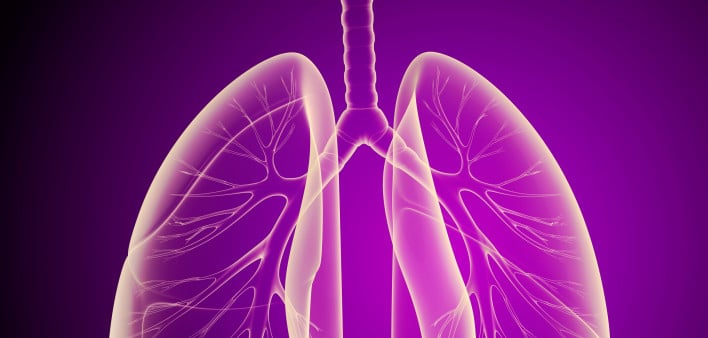Instant Relief: How to Remove Mucus from Lungs Immediately
Related Topics (Sponsored Ads):
While some mucus production is normal and helps trap irritants before they reach the lungs, excessive amounts can hamper lung function. Thankfully, there are natural, safe methods to get rid of mucus quickly and improve lung health. This article explores tips to remove mucus from the lungs and throat, provide instant relief, and watch out for potential signs of lung cancer.
While some mucus production is normal and helps trap irritants before they reach the lungs, excessive amounts can hamper lung function. Thankfully, there are natural, safe methods to get rid of mucus quickly and improve lung health. This article explores tips to remove mucus from the lungs and throat, provide instant relief, and watch out for potential signs of lung cancer.

Stay Hydrated and Moisturize the Air
Drinking plenty of fluids, especially water, helps thin out mucus and prevents dehydration which dries out the airways. Aim for 8-10 glasses of water daily. Herbal teas like ginger, peppermint, licorice root, and marshmallow root also help hydrate the body and have natural anti-inflammatory properties. The warm liquids provide a soothing effect for irritated throats. Use a humidifier to add moisture back into the air, which can loosen mucus and make it easier to expel. Inhaling the humid vapors also provides relief.
Try Steam Therapy
Inhaling steam from a hot shower or boiling pot of water can help clear mucus from the lungs and nasal passages. Lean over the pot, tenting your head with a towel to trap the steam. Keep eyes closed to prevent irritation. For added benefits, add menthol, eucalyptus oil, or Vicks VapoRub to the water. The vapors thin out mucus while the aromatic compounds provide a decongestant effect. Limit steam sessions to 10 minutes and keep your face at a safe distance from the water to prevent burns.
Practice Deep Breathing and Coughing
Take long, deep breaths to maximize airflow and loosen mucus. Fill your lungs fully by breathing in through your nose and exhaling slowly through pursed lips to control the airflow. Follow up with gentle huff-coughs to bring up the dislodged mucus. Practice breathing exercises like diaphragmatic breathing to fully expand the lungs and improve mucus clearance. Postural drainage also uses gravity to move mucus out of the lungs by positioning your body appropriately.
Up Your Intake of Hot Liquids and Spicy Foods
Sipping on hot coffee, tea, or chicken soup provides warmth that can loosen mucus. Spicy foods containing peppers, horseradish, onions, garlic, and ginger also stimulate mucus thinning. The compounds like capsaicin in these foods help boost circulation and provide decongestant effects. However, avoid dairy products like milk as they may worsen congestion. Staying hydrated also allows these nasal decongestants to work optimally.
Use Over-the-Counter Medications Judiciously
DE expectorants like guaifenesin help thin mucus while cough suppressants containing dextromethorphan can relieve coughs. Mucolytics actually break down mucus molecules. Only use OTC medications for limited periods under medical guidance as improper use may worsen conditions. Avoid suppressing coughs too much as coughing helps expel mucus. Carefully review dosage instructions and potential side effects before use.
Make Use of Natural Decongestants and Expectorants
Natural substances like honey, turmeric, eucalyptus oil, and oregano oil have decongestant and mucus-clearing abilities. Peppermint, fenugreek, and sage act as expectorants. For quick relief, make tea using lemon, ginger, licorice root, thyme, oregano, cinnamon, or fennel. These can be consumed regularly. Inhaling essential oils like eucalyptus, frankincense, peppermint, and tea tree also provides decongestion.
Consider Chest Percussion and Postural Drainage
Chest physiotherapy techniques like percussion help loosen mucus through mechanical vibration and make it easier to cough up. Postural drainage uses gravity to move mucus from the lungs by positioning your body in certain ways. Performing these under a doctor’s guidance provides additional methods to clear lung mucus.
Watch Out for Potential Signs of Lung Cancer
See your doctor if you have a persistent cough, wheezing, chest pain, shortness of breath, recurring respiratory infections, or coughing up blood. While not definitive, these may indicate lung cancer or other pulmonary conditions needing medical evaluation. Early screening helps detect lung cancer while still treatable. High-risk individuals should opt for low-dose CT scans to screen for tumors.
Additional lung cancer red flags include persistent hoarseness, swelling in the face or neck, excessive fatigue and weakness, sudden weight loss, loss of appetite, bone pain, headache, or even physical changes in the appearance of fingers and toes. Take note if symptoms worsen or fail to improve with treatment. Prompt evaluation assists in early diagnosis, boosting survivability.
Conclusion
A buildup of mucus in the lungs causes discomfort and affects pulmonary function. By staying hydrated, using steam inhalation, engaging in breathing exercises, consuming hot drinks and spicy foods, using natural remedies, and trying chest physiotherapy techniques, you can get quick relief from mucus congestion. Listen to your body and watch for persistent lung-related symptoms which may indicate a serious condition like lung cancer. Seeking timely medical advice enables early detection and management of any underlying health issues. With the right techniques and vigilance over your respiratory health, you can breathe easier and prevent dangerous complications.

